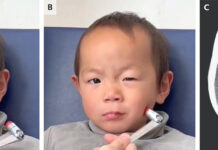This article highlights the case of 46-year-old with auto-brewery syndrome (ABS). A rarely diagnosed medical condition in which fungi in the gut convert the ingested carbohydrates to alcohol. The patient suffered the medical and social implications of the alcoholism but hadn’t had any alcohol that day.
The otherwise healthy 46-year-old had no significant medical or psychiatric history, which led to the suspicion of auto-brewery suspicion. In addition, he was not on any herbal or over-the-counter medications. However, he had a 6-year history of depression and complained of mental changes and memory loss. He started experiencing these symptoms after receiving antibiotic therapy including cephalexin for a traumatic thumb injury. One week after the course of antibiotics, he experienced personality changes. bet365 عربي Moreover, he felt depressed and his behaviour became aggressive which was quite unlikely of him. His primary care physician referred him to a psychiatrist who treated him with lorazepam and fluoxetine.
He was arrested one morning for presumably driving while drunk
Although the patient claimed that he wasn’t drunk, his initial blood alcohol level was twice the legal limit. The hospital personnel and police obviously did not believe him. Especially after the results. Even though he repeatedly denied having any alcohol. He was discharged the very day after full recovery.
After hearing about a doctor who successfully treated a similar case in Ohio and persuasion from his aunt, he agreed to visit the state for treatment. Basic laboratory testing showed normal results. The patient’s stool was positive for Saccharomyces cerevisiae (brewer’s yeast) and S. boulardii in addition to the normal bacterial flora in stool. Anti-fungal sensitivity testing showed sensitivity to azoles and nystatin.
Doctors gave the patient a carbohydrate meal and monitored his blood alcohol levels. After 8 hours his blood alcohol levels elevated to 57 mg/dl. Treatment for eradicating the fungi in his stool included 150 mg oral fluconazole per day, for 14 days. On the 10th day, doctors alternated his medication with nystatin 500 000 IU because of no improvement, for another 10 days. He was sent home with instructions of a strict carbohydrate diet with no further anti-fungal therapy.
However, despite treatment, he still experienced intermittent flares. Gastroenterologists, neurologists, psychiatrists and internists were unable to help him return to his previous state of health. His drunken state of mind even caused a fall which led to intracranial bleeding. Even at this point, the doctors refused to believe that he did not drink despite his persistent denial.
After his symptoms continued to worsen, he decided to reach out to an online support group
He decided to reach out to an online support group because of his worsening symptoms. There were no significant findings in his physical examination. He was currently completely clean from alcohol and was only a light social drinker before this. Doctors collected gastrointestinal secretions to investigate further. Cultures from his upper small gut were positive for Candida albicans and C. parapsilosis. His symptoms and investigation findings led to the diagnosis of auto-brewery syndrome Doctors recommended treatment with oral itraconazole because of his previous exposure to fluconazole.
His symptoms still did not improve even after 10 days. Therefore, doctors increased the dose which helped eliminate symtptoms. كيف يلعب البوكر However, he relapsed when he ate pizza and drank soda while still on treatment. He was then decided to be treated with intravenous micafungin. العب كازينو
After 1.5 years of following a strict carbohydrate-free diet with gradual introduction of carbs and close monitoring, he was asymptomatic.
References
Case report and literature review of auto-brewery syndrome: probably an underdiagnosed medical condition https://bmjopengastro.bmj.com/content/6/1/e000325




